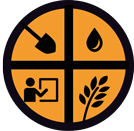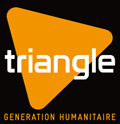- Funding : EuropeAid (European Commission), and Co-sponsor to be identified
TGH together with "Aide Médicale Internationale", each association within its specific field of expertise, carry out a joint action towards the populations of the Tihama plains, one of the poorest areas in the Republic of Yemen.
Expected results:
- The exploitation of the natural resources used for farming is improved on a long-term basis
- The farming strategies of subsistence are supported
- The access to quality basic healthcare is strengthened on a long-term basis
TGH and Aide Médicale Internationale are conducting a comprehensive food-safety program for the rural populations of Wadi Siham. Each NGO runs actions according to its specific skills.
Aide Médicale Internationale (AMI), in the process of rehabilitating health centers with the Health Ministry, provides training courses in nine health centers and runs two mobile clinics to bring health services to remote groups living far from the area's main population pools. As well as optimizing access to primary health care, this project involves prevention and treatment of malnutrition.
In turn, TGH is running three complementary aspects of the program:
- Improvement of farming practices and production
The agriculturists of TGH work in 15 villages in the districts targeted by the project. They work daily with the farmers who want to take part in the tests and guide them through the benefits and disadvantages of new agricultural methods, together with the yield of introduced varieties. TGH, with the support of local multiplication centers and local representatives of the Yemenite Agricultural Ministry, present the farmers with varieties that have shorter cycles, allowing farmers to face a reduced rain period and optimize the use of water in the region. Several varieties of local cultures (tobacco, margosa, sorghum, fodder) are thus tested and distributed if successful. Meetings inviting farmers from different villages foster the exchange of agricultural practices.
- Improvement of animal production
Impoverished people with small herds (ovine, goats) populate the 24 villages where Triangle G H is active. The animals are raised for milk and meat that form a major portion of each family's capital. Improvement of breeding practices and the diffusion of large-scale, basic veterinary services helps to increase the volume of animal production.
The breeding team of TGH has also carried out training courses that are open to women in every village. The courses focus on identification and treatment of the most common animal diseases. Two women per village are in charge of the basic stock of medication that they can renew thanks to payment received for their treatment of animals. Treatment covers the most common diseases in the region (1,600 users and over 16,250 treatments in 2009).
TGH also offers volunteer-breeders the possibility of purchasing, at a reduced rate, food supplements that strengthen the animals. This allows breeders to sell such animals at a higher price; the average net gain according to initial studies is €5 per head sold at €50. It goes without saying that this food protocol is managed by agriculturists and explained in detail to each breeder participating in the project. One of the main levers for optimizing feed-related practices in the area is to develop clover culture. Indeed, clover consumes less water than alfala, a crop that is over-cultivated in the region. In addition, having observed that major quantities of fodder are wasted when scattered on the ground (feed stamped into the soil or mixed with excrements), Triangle has implemented feeding-bowls. The actual gain generated by implementation of feeding-bowls is currently being calculated.
- Promotion of good practices of hygiene
In the 24 villages targeted by the program, TGH is developing the knowledge and practices linked to personal and environmental hygiene. A simple training method targeting men and women (in separate sessions), based on active participation has been implemented. Subjects covered were defined following analysis of an initial survey of the practices in the targeted area. This work was performed in close cooperation with Aide Médicale Internationale that spreads complementary messages to the population. The community health agents trained by AMI are informed about Triangle's action in the hygiene & health area.


